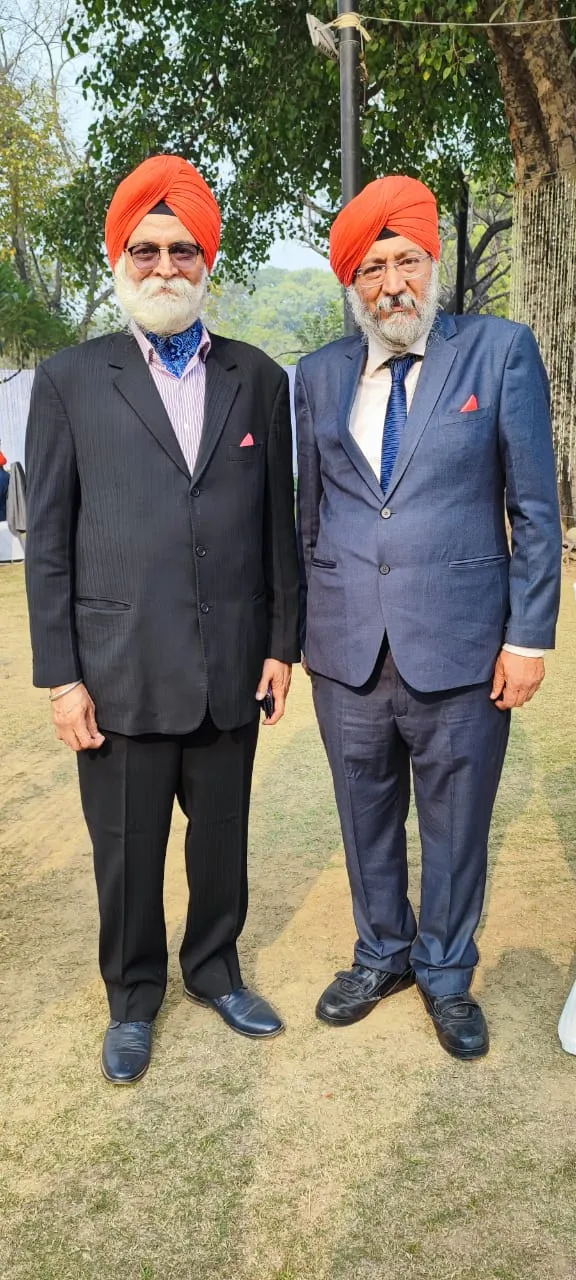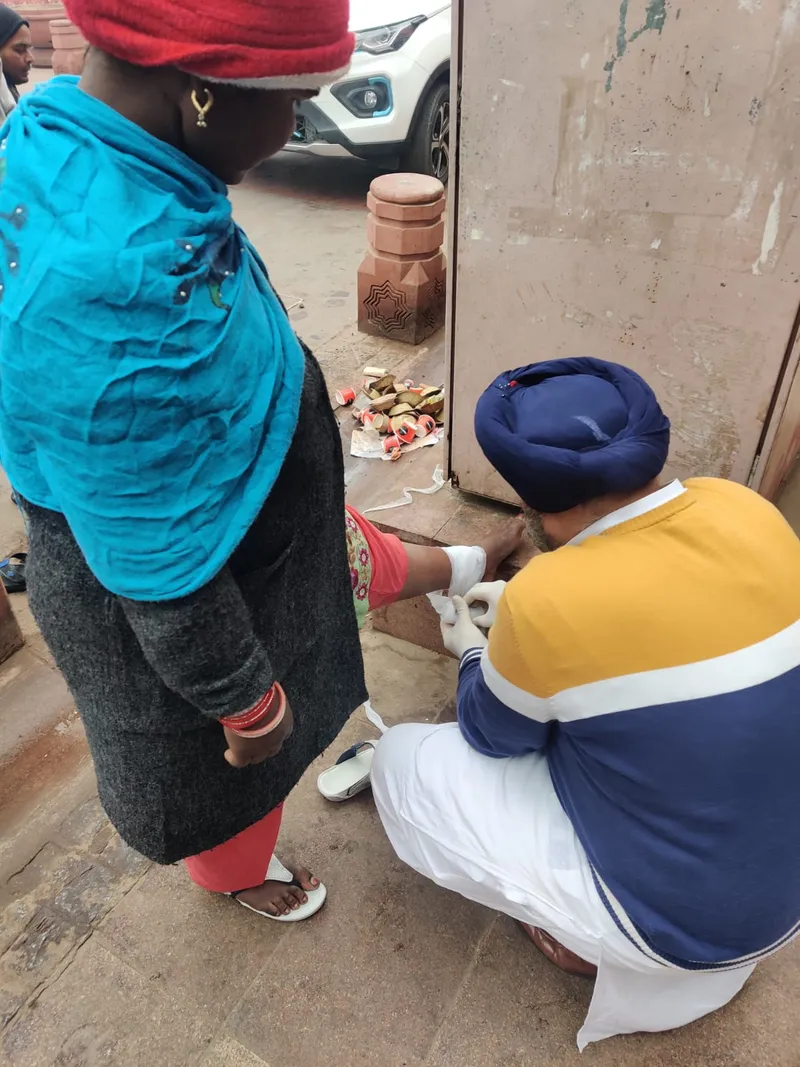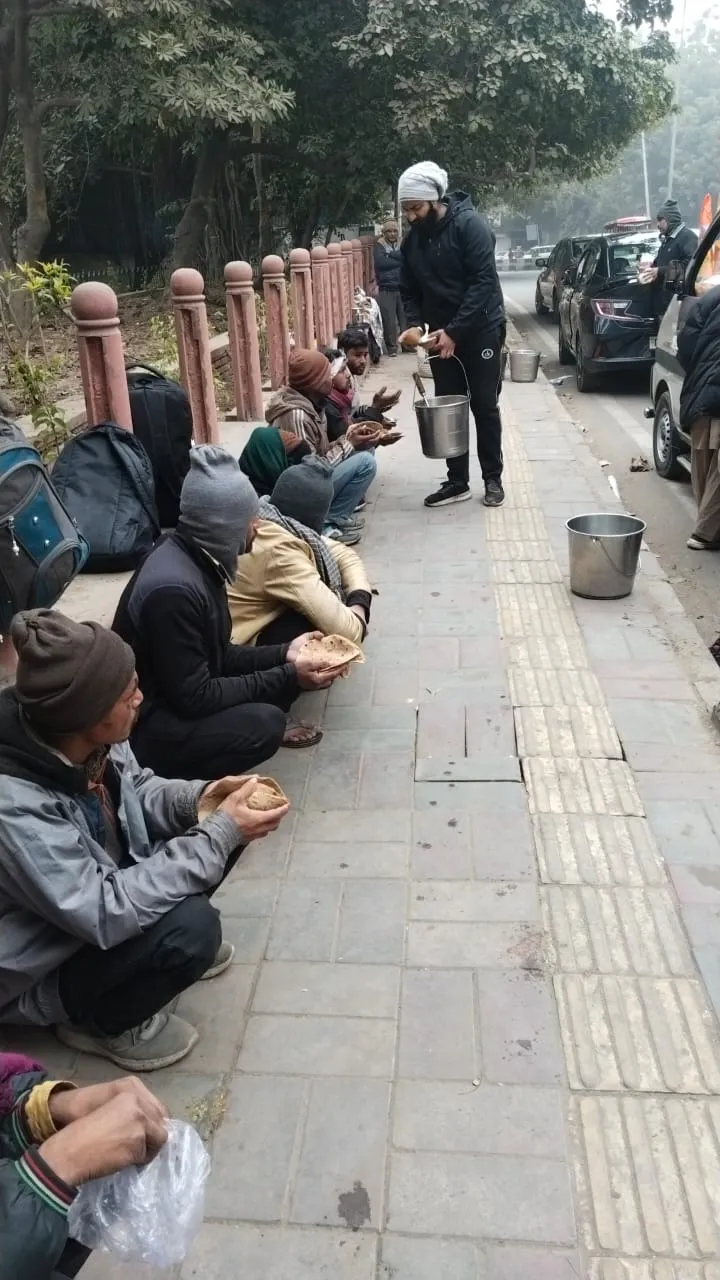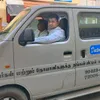Meet the brothers from Delhi providing free medical services, food to migrant workers
Veerji da Dera, founded by Tirlochan Singh in 1989, offers basic medical assistance and free food to migrant workers and homeless individuals in various parts of Delhi.
Early morning in Chandni Chowk in Delhi, one can see the faint silhouettes of people—barely visible in the winter mist—standing in a line at 7 AM on the footpath every day.
Upon close inspection, they seemed to be a group of migrant workers availing of free medical assistance provided by Veerji da Dera, before leaving for their daily work.
“Most of these people are migrant labourers, who come to the city for two or three months in search of livelihood. They work at shops, pick rags, and do other labour-intensive jobs. They often get injuries on hands and feet while working in harsh conditions,” says Kamaljeet Singh, who manages Veerji da Dera.
Tirlochan Singh founded Veerji da Dera in 1989 following his retirement and committed his life to serving the underprivileged. After he passed, his sons—Brigadier Premjit Singh Panesar and Kamaljeet Singh—took over the organisation’s management to continue their father's legacy.

Brigadier Premjit Singh Panesar (left) and Kamaljeet Singh (right)
The organisation offers basic medical assistance in footpath clinics—consisting of a van—where doctors treat 350 to 400 people daily. Additionally, it organises free food distribution through langars
“Since childhood, we have seen our father work for the disadvantaged people, and we have also inculcated that ‘seva bhava’,” Kamaljeet tells SocialStory.
Carrying the baton
Kamaljeet—who operates a CCTV installation business—starts his day by checking on the footpath clinic facilities run by the volunteer organisation.
His father, Tirlochan, always believed in selfless service. In the 1980s, he began organising volunteers to help him clean gurudwaras, and people lovingly called him Jharoo Wale Veerji (An elder brother with a broom/who cleans).
Soon, he started offering free food to migrant workers in Delhi, and eventually, he expanded it to provide basic first aid for minor injuries. Meanwhile, the brothers also helped their father in this social cause.
After working in the pharmaceutical company Glaxo in Kanpur, Kamaljeet returned to Delhi in 1992 and learnt jewellery manufacturing from a friend running a jewellery export house.
"I initially worked with him before starting my jewellery workshop. From 1995 onwards, I delved deeper into electronic security services, which greatly intrigued me. By 2000, I ventured into CCTV installation services, while my wife took charge of our jewellery business," he says.
However, after his father passed away in 2010, Kamaljeet and his brother together took up the responsibilities of their father’s organisation. “Helping needy people and not discriminating against them is what we have learnt from our parents and religion. Our parents have always been our guiding spirit,” he says.
While the brothers understood how to manage the organisation, it took them some time to run the organisation smoothly. The loyal group of volunteers—working with Veerji da Dera for a long time—stood by their side, offering their support and guidance.
"From a young age, we have been taught the values of compassion and selfless service by our parents. Continuing this project isn't just upholding our father's legacy, it's also our way of showcasing our commitment to helping the underserved,” he says.
Providing free medical help
The organisation sets up the five footpath clinics from 7 AM to 8.30 AM every day in Delhi’s Chandni Chowk, ISBT, Tilak Nagar, Lodhi Garden, and Jangpura areas.

However, Kamaljeet mentions that the volunteer team—consisting of over 350 individuals—help daily wage workers wherever required in Delhi.
“We are a family of volunteers, and each one comes forward every morning at 7 AM at different locations in the city to take care of the medical needs of the homeless,” he adds.
The doctors provide medical assistance to workers by administering first aid for injuries and maggot foot, and providing treatment for common ailments like fever, diarrhoea, and seasonal flu, among others.
The organisation also operates a 55-bed homeless shelter in West Delhi. It currently accommodates 52 individuals and has a full-time nurse. Also, volunteers regularly visit throughout the day to assist with various management tasks.
Kamljeet explains that the facility serves as a refuge for those in need of a place to heal after an injury or ailment, especially homeless individuals. Once they regain their health, they are free to return to their daily lives.
However, for those facing more serious health challenges or the elderly, the facility offers ongoing care and support.
Further, the facility operates an outpatient department (OPD) with allopathic, homoeopathic, and dental practitioners available. It also offers free-of-cost treatment not only to the residents of the facility but also to the local community.
These doctors work free of charge as volunteers or their fees are covered by other volunteers of the organisation.

The organisation provides free food in 25 areas in Delhi
Kamljeet explains that the organisation offers basic medical help, but if there is a requirement for hospitalisation, it takes the patient to the nearest hospital. “The cost of operation, treatment or hospitalisation, if any, is borne by the volunteers.”
The organisation also provide free food from 7 AM to 8.30 AM through langars in 25 areas in Delhi, including Chandni Chowk, Lahori Gate, Humayun Tomb, AIIMS, and more. However, in some areas, it arranges langars in the evening.
Today, Veerji da Dera feeds about 2,500 daily wage workers and homeless people.
Kamaljeet explains that he has taken 70 acres of land near Delhi on rent where many of the volunteers collectively grow rice, wheat, and millet. The agricultural produce is used to prepare the food served in the langars.
When discussing how the brothers manage funds, Singh explains, "We're like a big family of volunteers who generously contribute. For example, some of the doctors provide treatment at their own expense. Similarly, other volunteers also take responsibility for covering the other costs.”
He adds that they also receive medicines, equipment, seeds, fertilisers, and more in donations.
“We plan to further expand our shelter home, but we want to do it slowly, ensuring that we manage it effectively,” he adds.
(The story has been updated to correct a factual error)
Edited by Suman Singh








